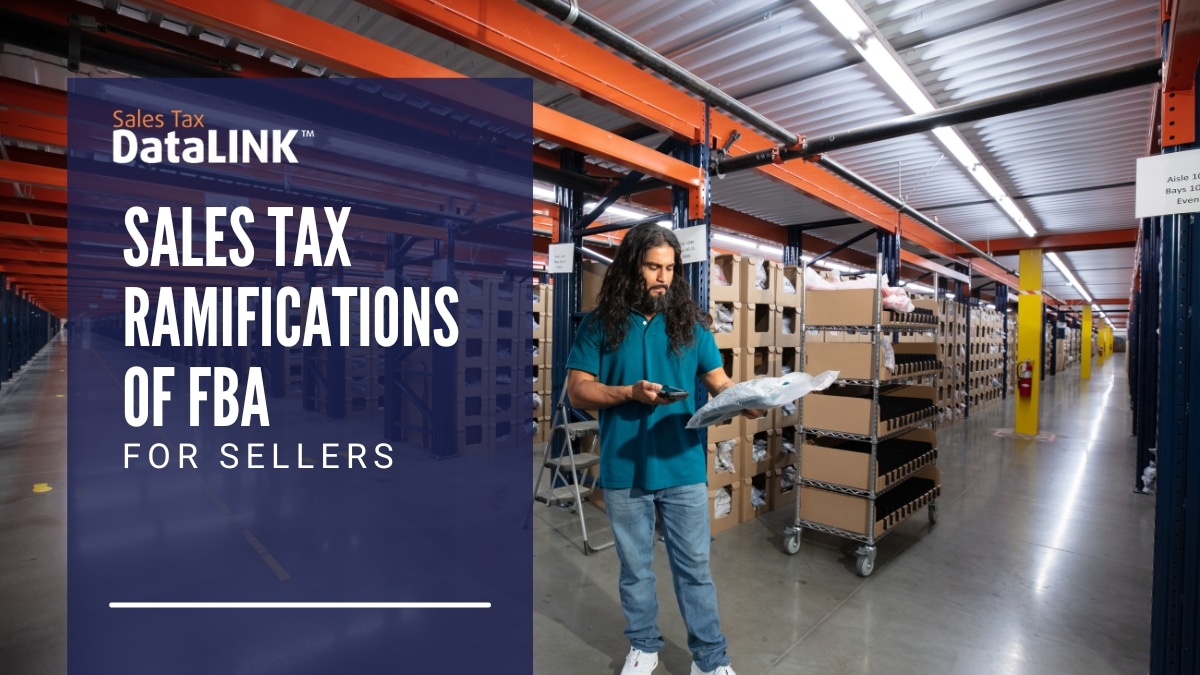For years, online sellers and consumers have had the luxury of tax-free retail. However, Fulfillment By Amazon (FBA) sellers are looking at new sales tax responsibilities as the number of states where Amazon is required to collect sales tax grows. So, as an FBA seller how will this affect your business? How do FBA sellers know when to collect?
Should You Be Collecting Sales Tax?
In short, you should consider collecting tax in any state where the following requirements are met:
- You have established nexus in that state;
- You sell a taxable good in that state; and
- The amount that would be taxed is “material” to your business.
Nexus: Nexus is the most basic way to determine if you have a sales tax liability. FBA sellers have nexus if they have inventory in an FBA Fulfillment Center.
Taxability: Most states tax all tangible personal property (or property that can be seen, touched, etc) unless specifically exempt. Each state must be looked at individually to determine if your product is taxable in that state.
Materiality: Materiality is more confusing and is the most difficult aspect of determining sales tax liability for FBA sellers. Determining whether or not sales tax made from your sales has a financial impact on your profit or not is very subjective. It can be beneficial to be conservative on this point, but keeping an eye on sales volume over the tax period to make sure you are collecting when you need to is recommended.
It is also important to realize that once your business has nexus in a state, you must collect tax on all sales in that state, whether you ship them yourself, through Amazon, or through another carrier. Best sales tax practitioners register with the state either way once they have established the presence of nexus and that their goods are subject to sales tax. If, down the road, the state were to discover that a business’ sales tax exposure was material and that it was not registered, it could mean significant fines, penalties, and fees as well as interest on any past sales tax liabilities.
What Happens If You Don’t Register?
Having incorrect information regarding where you should be charging sales tax can lead to over or under-paying sales tax. If these errors are not caught before filing they can result in fines, penalties, audits, or, in a worst-case scenario, jail time. This is why it is so important to follow the procedures laid out by Amazon and state taxation agencies to the best of your abilities.
Of the states where Amazon has FBA Fulfillment Centers, 14 of them have identified 3 activities that can constitute nexus within the state.
- Inventory: Keeping merchandise in the state for the purpose of making sales within that state.
- Warehouse Use: Using a warehouse or distribution center, directly or indirectly, even on a temporary basis.
- Fulfillment Services: Selling includes all activities that are necessary to make sales and specifically lists fulfillment activities as one of those activities.
The following states recognize at least one of the aforementioned activities as the establishment of nexus.
| State | Inventory | Warehouse Use | Fulfillment Services |
| Arizona | X | X | |
| California | X | X | X |
| Florida | X | X | |
| Indiana | X | X | X |
| Kansas | X | X | X |
| Kentucky | X | X | |
| Nevada | X | X | X |
| New Jersey | X | X | X |
| Pennsylvania | X | X | X |
| South Carolina | X | X | X |
| Tennessee | X | X | |
| Texas | X | X | |
| Virginia | X | ||
| Washington | X | X |
Are you an FBA seller who is unsure if you should be paying sales tax or doesn’t think you’re paying it correctly? We can help with outsourcing and tools that make sales tax a breeze.




